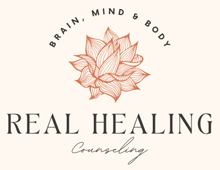Shame in and of itself is not “bad”. It’s “toxic shame” that wreaks havoc on our souls, our self-esteem, our relationships, and our behaviors.
Healthy shame reminds us of our shared humanity, of our humanness, that we are perfectly imperfect.
Toxic shame is when shame is no longer is a human emotion but part of our identity.
John Bradshaw, author of “Healing The Shame That Binds You” writes “to have shame as an identity is to believe that one’s being is flawed, and that one is defective as a human being”
When we have toxic shame or a shame rooted identity, we are no longer able to be our authentic selves, since we believe our authentic self is deeply flawed. We learn to hide who we truly are. We live from a false sense of self, which not only creates more shame but also impedes on our ability to have a sense of Self.
We believe that if people truly knew us, they would not love us and they would leave.
Okay, so why is it so hard to heal?
I am continuously humbled by the power of toxic shame.
Toxic shame and a fear of abandonment are two of the greatest symptoms of a less than nurturing childhood experience.
A child is dependent upon their attachment to their primary caregiver(s) for their survival, risking this attachment would mean the risk of life and death.
So the child blames themselves for the abuse, trauma and neglect. They carry the belief that they must be flawed or inadequate or unlovable to have not had their needs met or to have been mistreated.
When a child does not healthily attach to their caregivers, they can attach to their shame.
Sometimes we subconsciously hold onto this shame because it blocks the reality of our story. It blocks our capacity to fully acknowledge the pain and hurt of the trauma, abuse and neglect we have experienced. This is often on purpose because facing the pain is hard. But in reality it keeps us stuck.
When we are in toxic shame we are unable to be our authentic selves, with ourselves and with others. This means that we cannot form healthy, intimate relationships. And when we can’t form healthy intimate relationships, we are left with a gaping hole where our unmet need for connection is. Connection is a need. We are social beings.
People often find themselves engaging in addictions to numb the pain and loneliness and replace their need for authentic connection, like sex and love addiction, workaholism, substance abuse, for instance.
This is a loop. The shame tells us to hide. The more we hide, the more we feel shame.
Healing the shame requires that we feel safe enough to face the ways we have been hurt. Inner child work and re-parenting is a great tool here. When we build up our healthy adult self, we can feel safer being more honest about the ways our primary caregivers failed us. We can feel safe enough to begin the grieving process.

